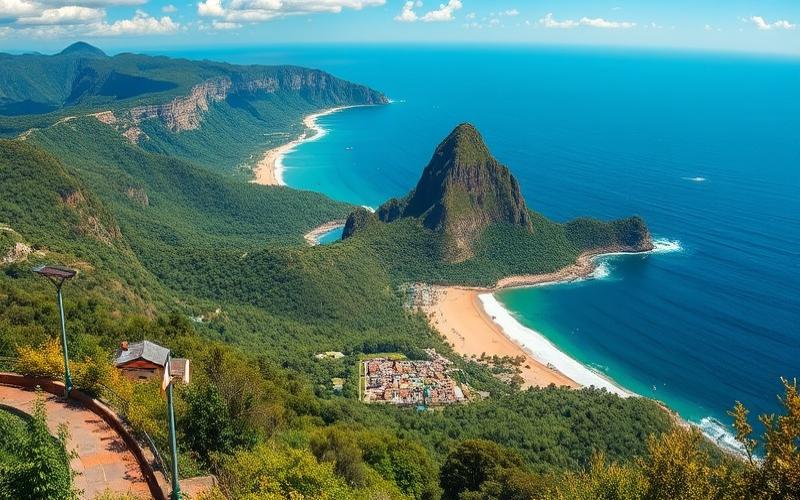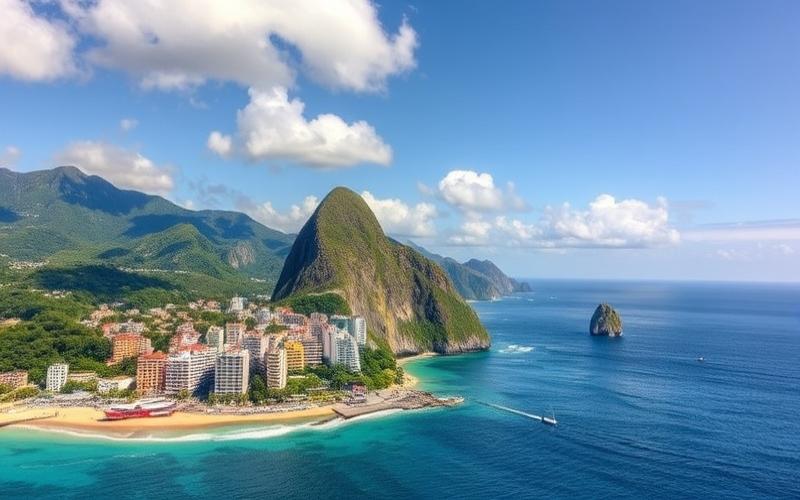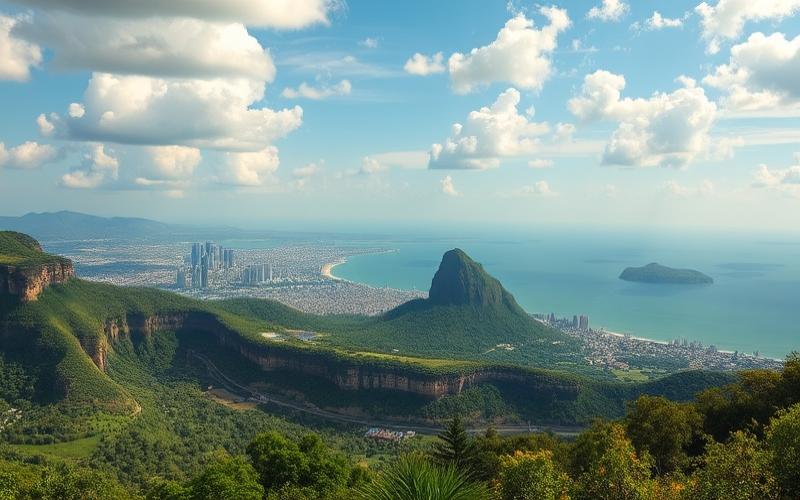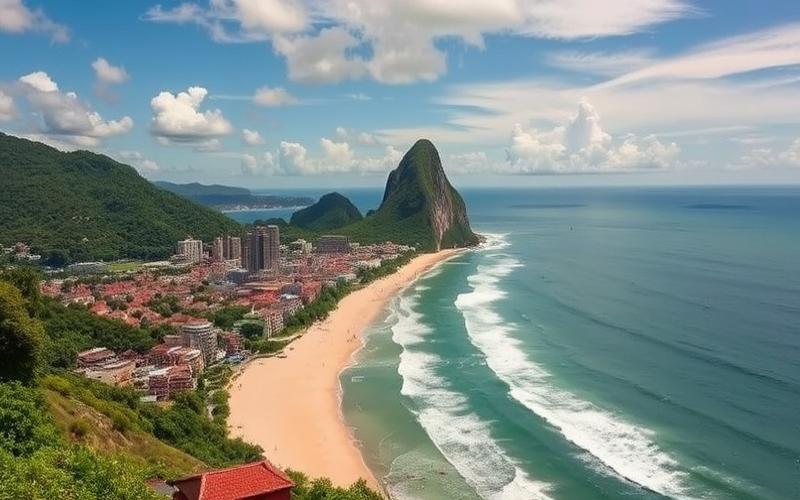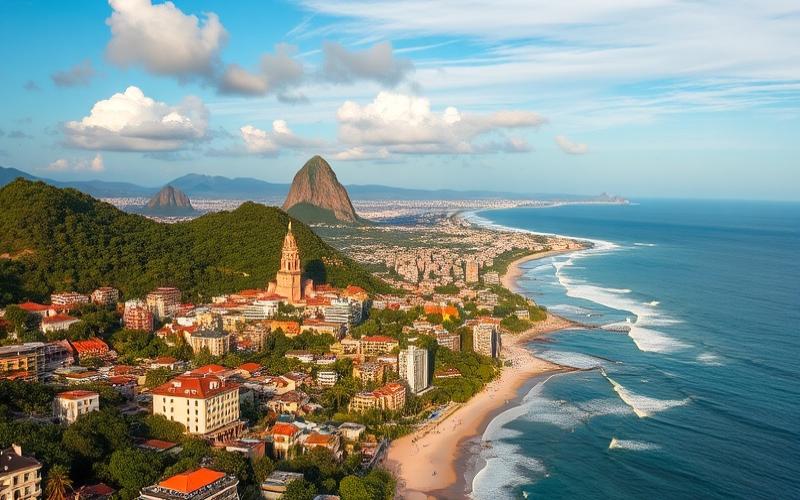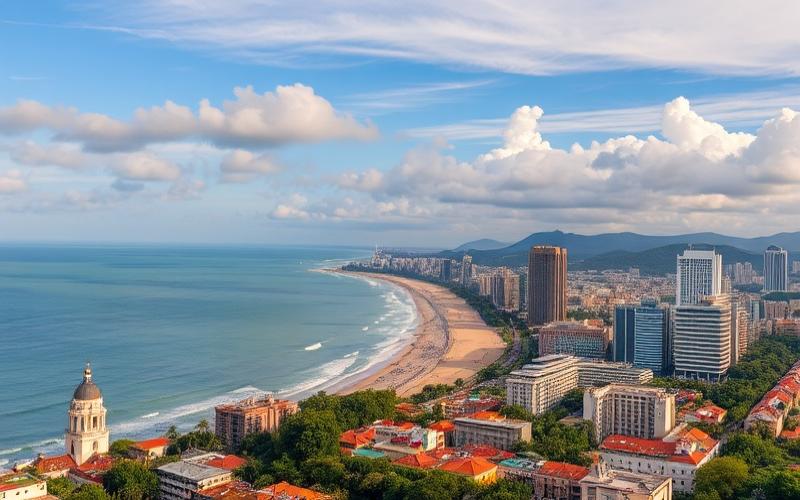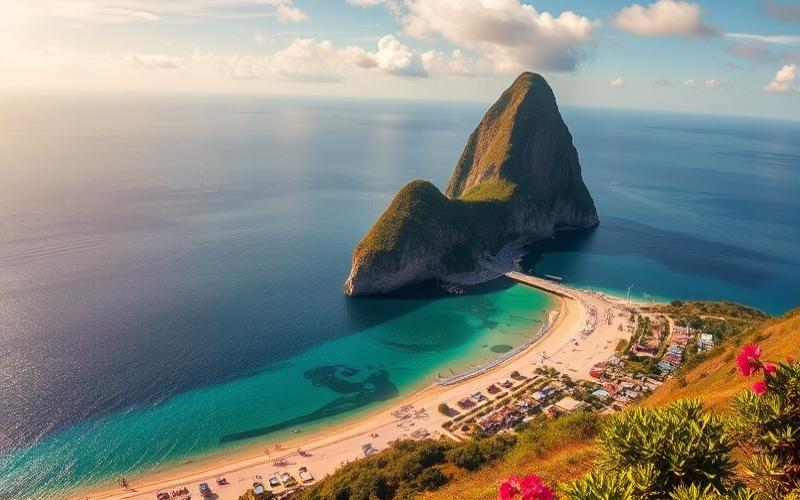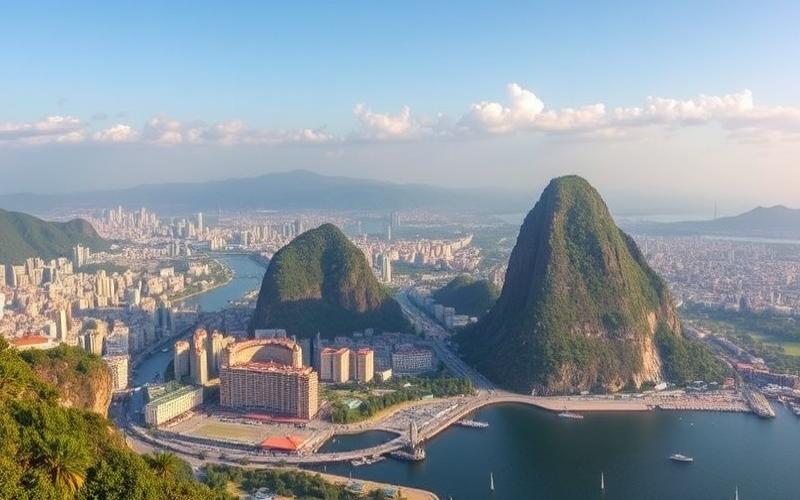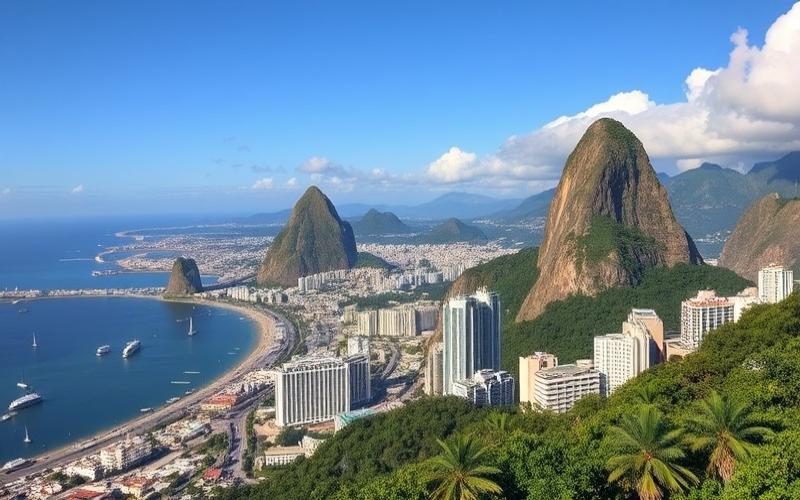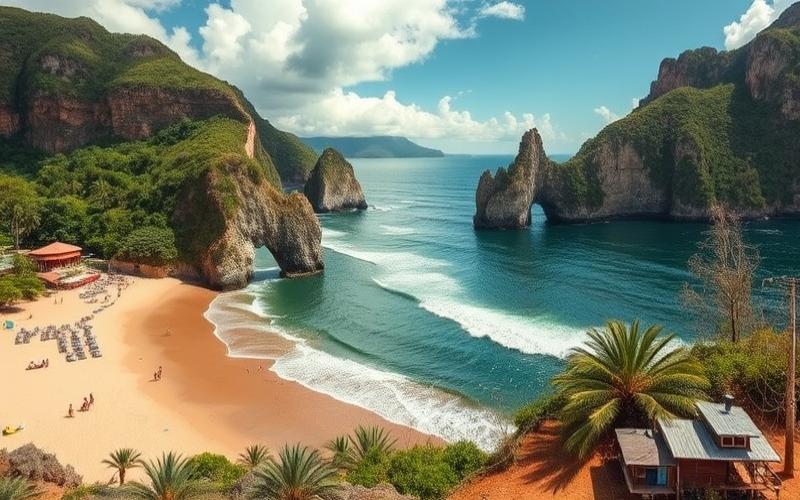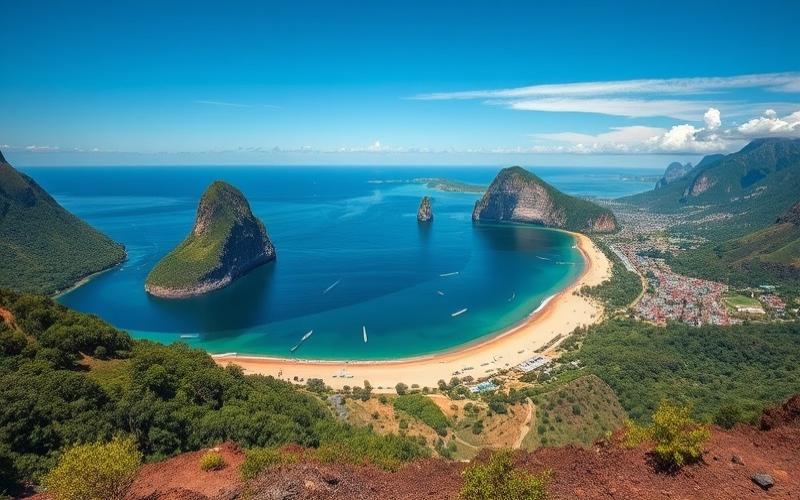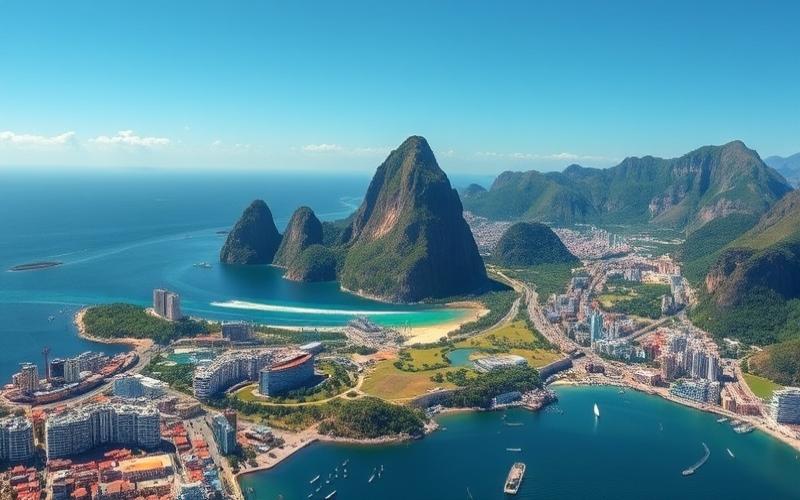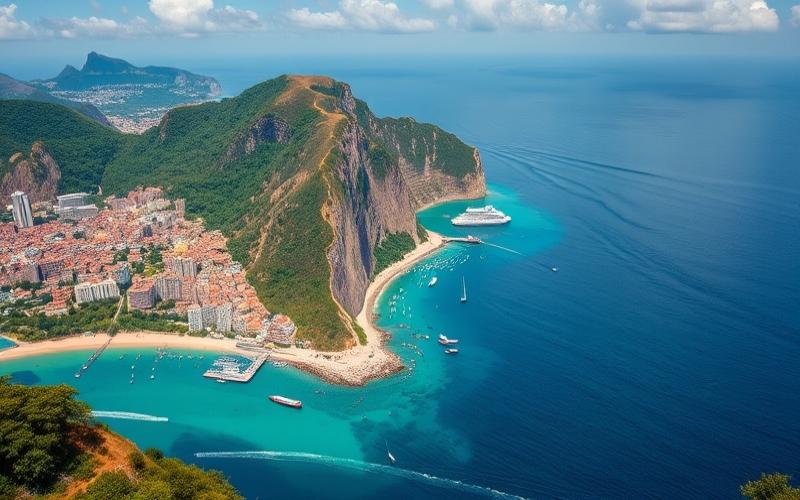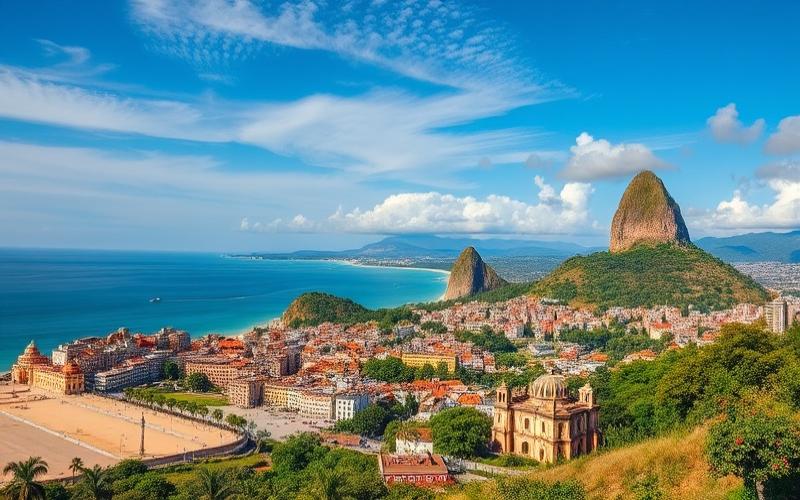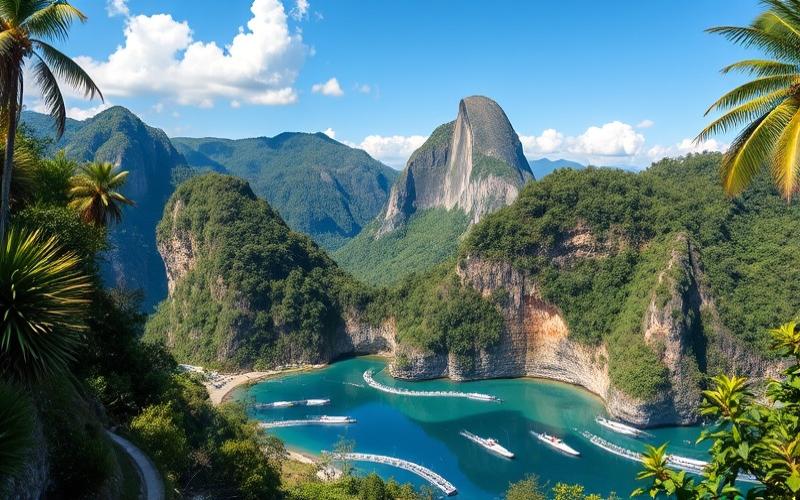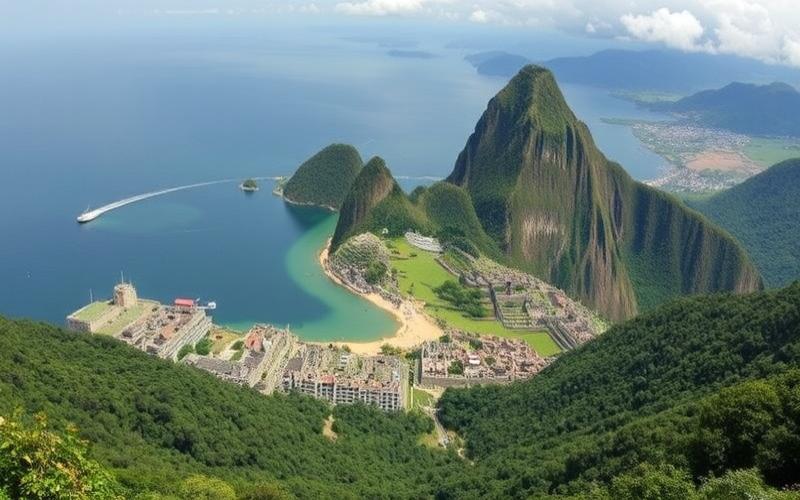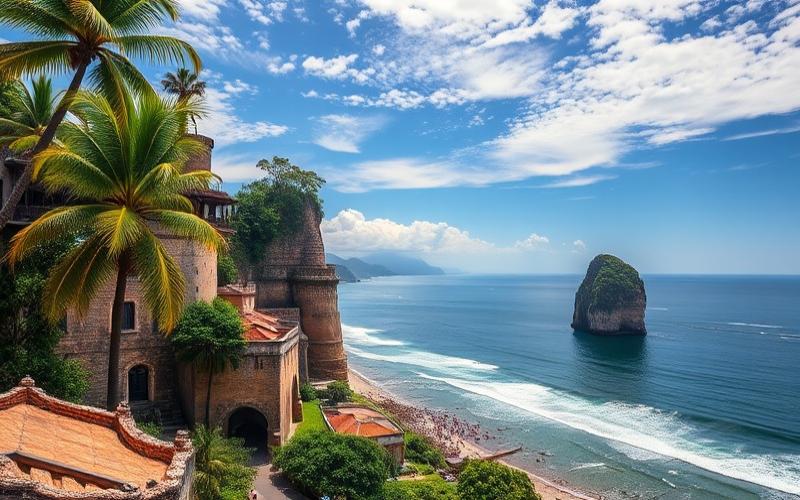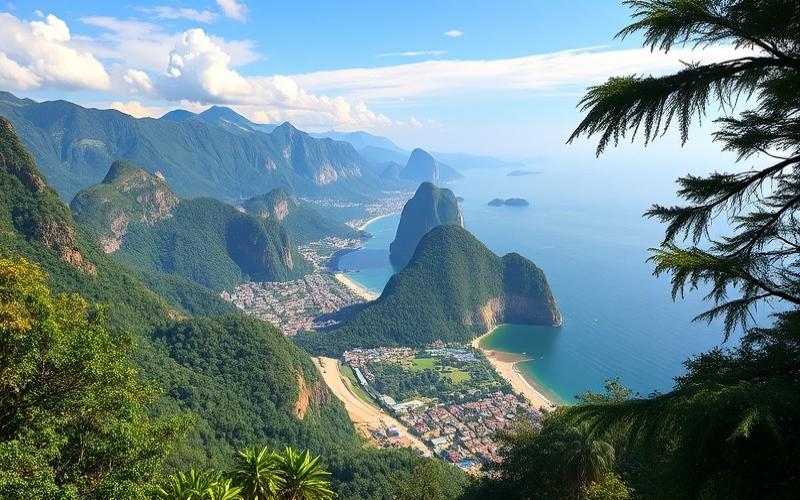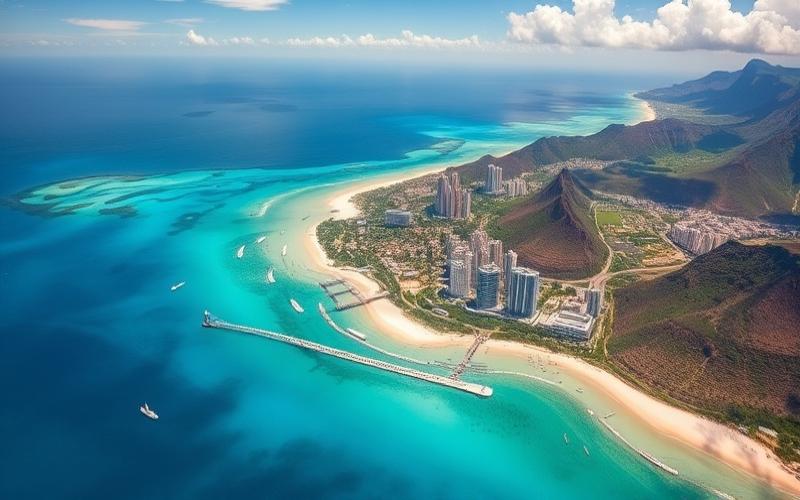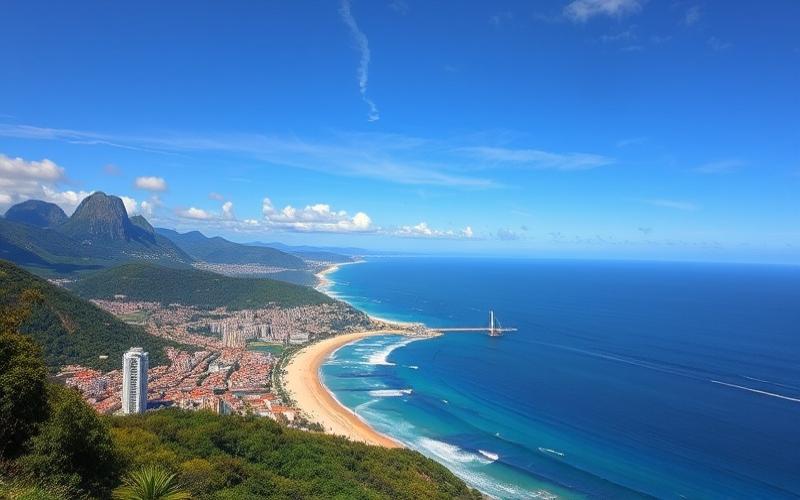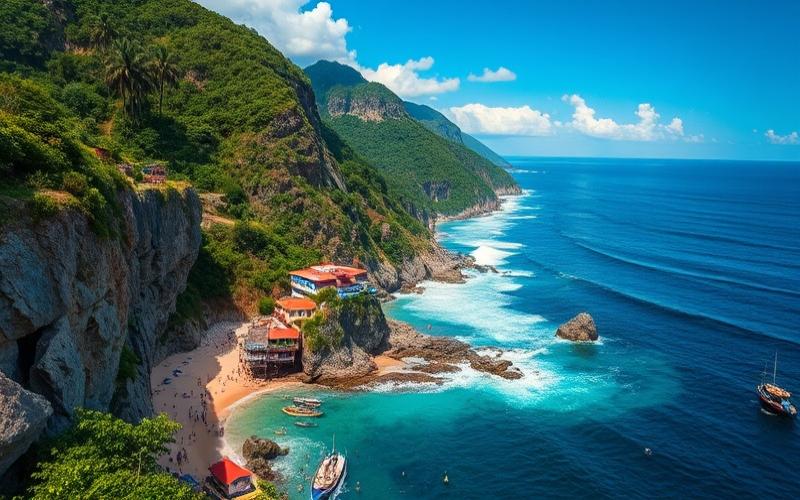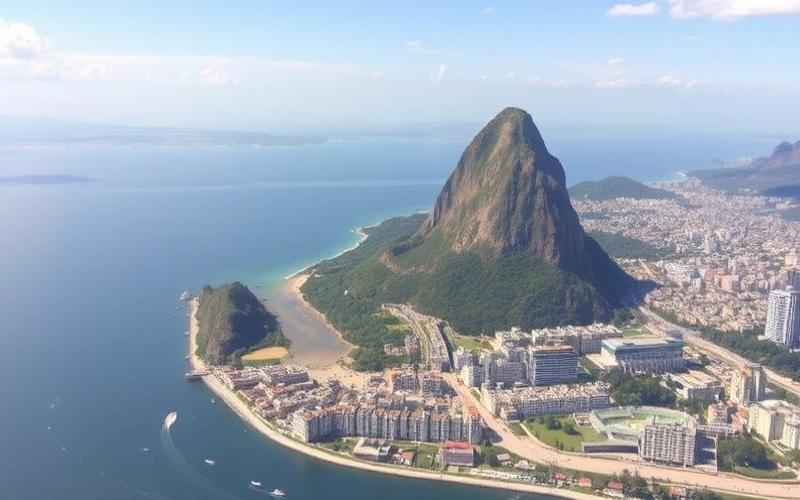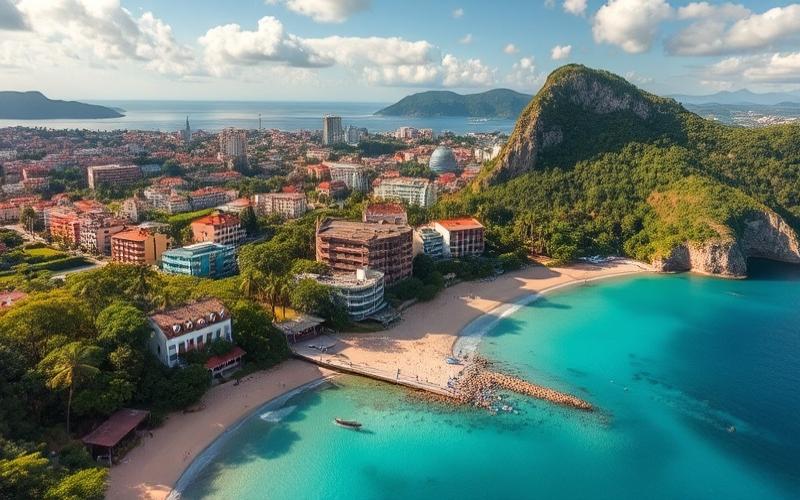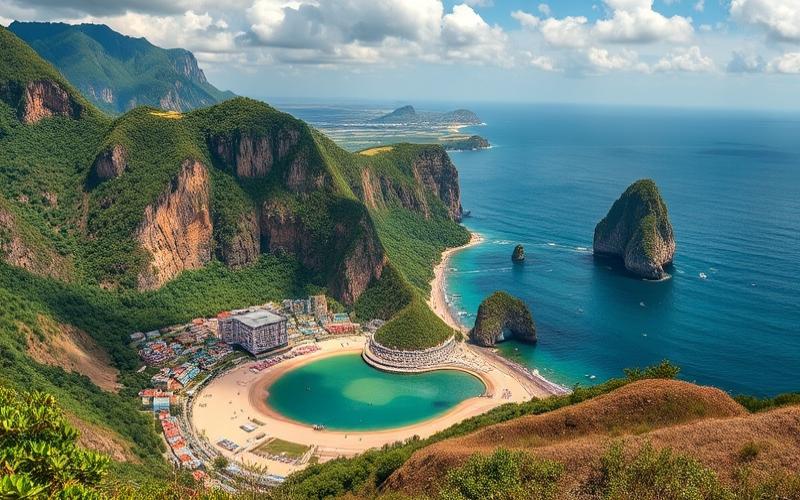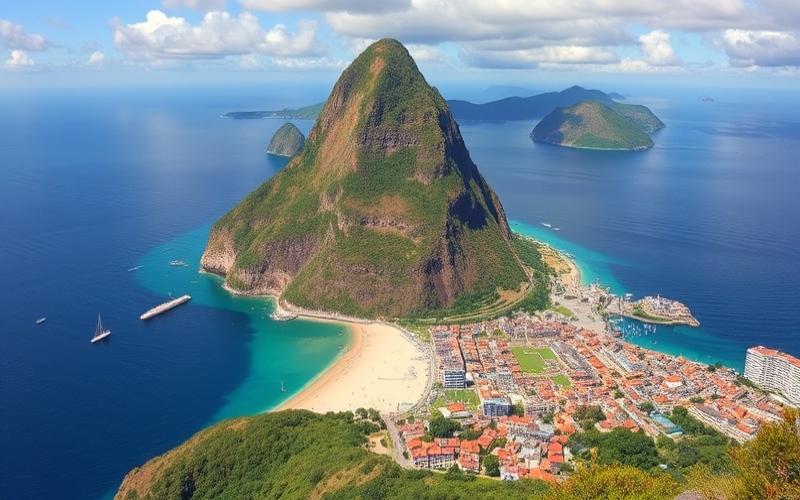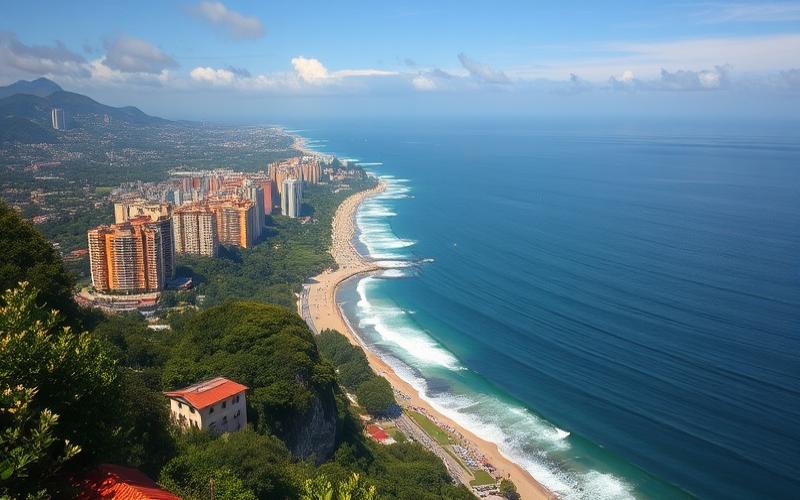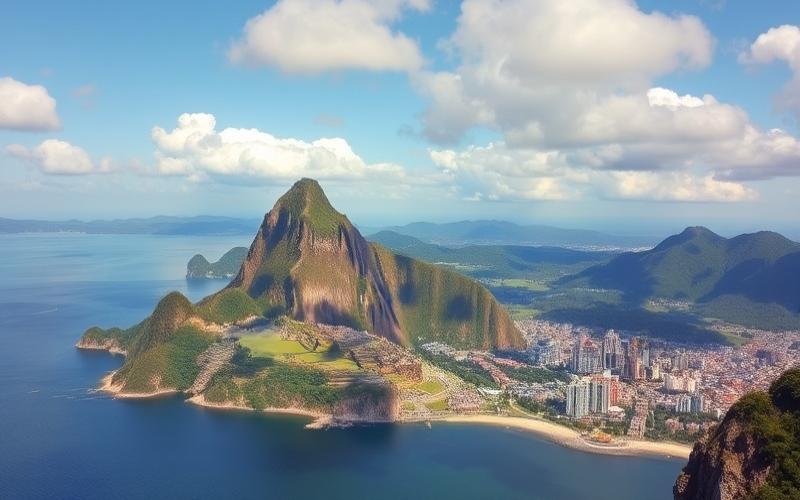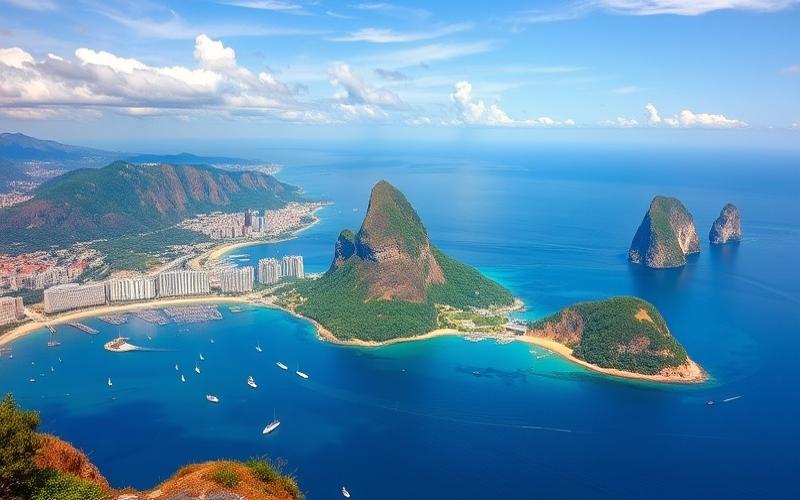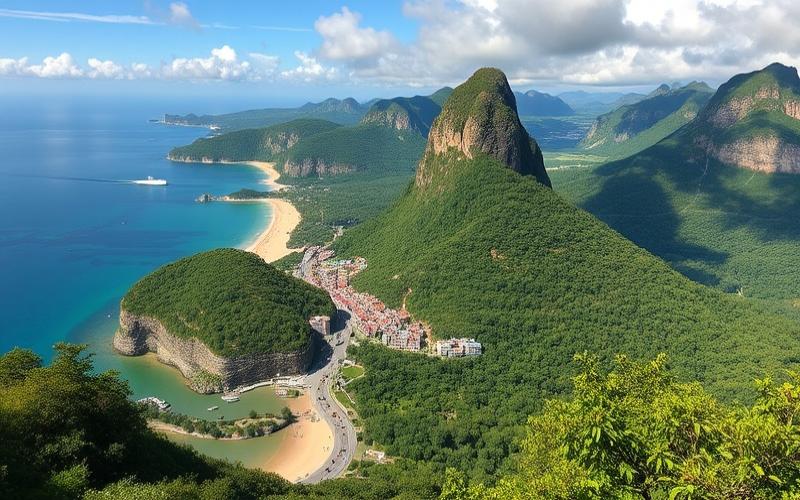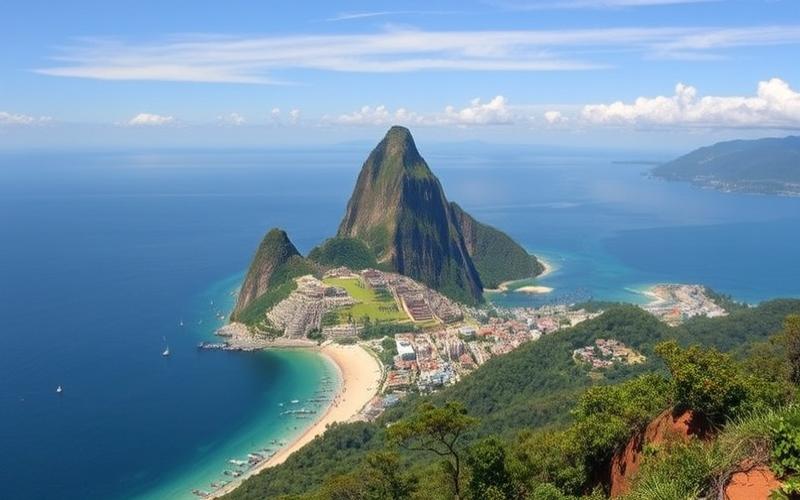
 Published on and written by Cyril Jarnias
Published on and written by Cyril Jarnias
Obtaining a construction permit in Brazil can be an uphill battle, as regulations and administrative requirements are often complex and vary by region. This process requires in-depth knowledge of local laws, meticulous precision in document preparation, and anticipation of potential bureaucratic challenges.
In this article, we will explore the essential steps to follow, highlight the necessary legal tools and available resources to effectively navigate this administrative maze. Whether you’re an experienced real estate developer or an individual looking to build your dream home, understanding these procedures is crucial to avoid pitfalls and successfully complete your project.
Explanation of Required Permissions for a Construction Permit in Brazil
Types of Permissions Required for Obtaining a Construction Permit in Brazil:
| Permission Type | Description | Main Required Documents |
|---|---|---|
| Licença de Construção | Municipal authorization for any new construction or major modification. | Architectural plans signed by a CREA-registered architect, technical file, proof of land ownership, etc. |
| Licença Ambiental | Required for projects with environmental impact (large scale, sensitive areas). | Environmental Impact Study (EIA/RIMA), environmental management plan, assessment reports, etc. |
| Special Authorization | Mandatory for protected areas, historical heritage, or industrial constructions. | Proof of heritage compliance, authorization from relevant federal or regional agencies, detailed plans. |
| Licença de Funcionamento | Allows actual use or occupancy of the building after construction. | Proof of completion, compliance certificates, safety certificates, final construction report. |
Documents Required for Each Permission Type (Non-Exhaustive List):
- Architectural plans signed by a qualified architect (CREA number)
- Property title or proof of land possession
- Land registration certificate
- Environmental studies and reports if necessary
- Technical file: site plan, cross-section, elevations, structural details
- Payment of municipal taxes and fees
- Other specific documents depending on the municipality and project nature
Role of Local Authorities:
Municipalities are responsible for analyzing and issuing construction permits (Licença de Construção).
Regional Architecture and Engineering Councils (CREA/CAU) oversee professional qualifications and plan compliance.
Municipal councils may impose additional restrictions based on master plans or local zoning.
For large-scale projects or in protected areas, regional or federal environmental agencies (e.g., IBAMA) intervene to grant environmental licenses.
Environmental Standards and Building Codes to Follow:
Compliance with the Brazilian Building Code (ABNT technical standards, safety, accessibility).
Application of environmental standards at federal, state, and municipal levels, particularly for waste management, resource preservation, and biodiversity protection.
Requirement to present an Environmental Impact Study (EIA) and its report (RIMA) for projects likely to have significant impact.
Compliance with urban zoning and land use limitations defined locally.
Special Permissions:
For environmental protection areas, historical heritage, coasts, or forests, additional permissions are required from competent authorities.
Large projects (shopping centers, factories, infrastructure) often require multiple licenses and public consultations.
Typical Permission Processing Times:
Licença de Construção: from a few weeks to several months depending on the municipality and project complexity.
Licença Ambiental: several months to a year for projects subject to EIA/RIMA.
Variable times for special permissions, often longer when consulting federal agencies or facing appeals.
Resources to Facilitate the Process:
Online services from many municipalities for document submission.
Official guides from city halls and environmental agencies.
Qualified professionals (architects, engineers, specialized lawyers) to assist with file preparation and follow-up.
Professional associations and construction industry unions for information and advice.
Key Takeaway:
Obtaining a construction permit in Brazil involves a frequently complex procedure, dependent on location and project type, and subject to multiple technical and environmental regulations.
Good to Know:
In Brazil, a construction permit requires several authorizations, such as municipal project approval and compliance with environmental standards, each step involving specific documents like architectural plans and environmental impact studies; processing times can vary but typically take several months, especially for protected areas or complex projects. Consulting local resources and regional councils is advised to simplify the process and ensure compliance with legal and technical requirements.
Urban Planning Regulations in Brazil and Their Impact on Construction Projects
Key Urban Planning Regulations in Brazil
Urban planning regulations in Brazil are based on a complex set of laws and standards distributed across federal, state, and municipal levels. There is no unified code; the legal framework is characterized by strong decentralization.
| Level | Main Regulation | Scope and Objectives |
|---|---|---|
| Federal | City Statute (Law No. 10.257/2001) | General urban planning, instruments for land management |
| Federal | Federal Constitution (Articles 182-183) | Right to the city, social functions of property |
| State | Regional Master Plans | Inter-municipal coordination, development guidelines |
| Municipal | Master Plan (Plano Diretor) | Zoning, land use, local construction parameters |
Essential Urban Planning Certificates:
- Certidão de Uso e Ocupação do Solo: verifies project compliance with local zoning.
- Certidão de Conformidade Urbanística e Ambiental: attests simultaneous compliance with urban and environmental rules; required for environmental permit procedures.
These certificates are essential when submitting a permit or municipal approval request.
Impact on Real Estate Projects
Regulations influence all project aspects:
- Planning: Obligation to integrate the project into the municipal master plan; preliminary zoning analysis.
- Architectural Design: Adaptation to local standards (maximum height, allowable density), potential integration of environmental or heritage requirements.
- Administrative Approval: Multiple permissions to obtain from municipal and sometimes state/federal authorities depending on environmental or social impact.
Recent Examples
Ecoparque Cascavel Project: This sustainable urban model had to be adapted to Brazilian environmental guidelines and local requirements for material sourcing. Quick acquisition of necessary certifications enabled accelerated implementation.
Challenges Faced by Developers & Architects
List of main obstacles:
- Regulatory fragmentation leading to administrative complexity
- Frequent changes in local legal framework potentially delaying or modifying projects
- Frequent need to obtain multiple separate certificates
- Legal risks from divergent interpretations between institutional levels
Opportunities Offered by These Regulations
Positive aspects:
- More sustainable urban development through systematic integration of social/environmental criteria
- Incentive for architectural innovation (sustainable local materials, BIM)
- Creation of new models adapted to Brazilian realities – e.g., pilot neighborhoods “Ecoparque Bairros Integrados” integrating affordable housing and ecological respect
Interaction with Environmental Standards & Socio-Economic Issues
Urban regulations often explicitly incorporate:
- Requirements from CONAMA resolutions on environmental studies/authorizations;
- Specific responses to local social needs (social housing through municipal/regional programs).
The dialogue between urban planning and ecological concerns intensifies with each major international event such as the upcoming COP30 in Amazonia.
Recent Legislative Developments
Major observed trends:
- Progressive strengthening of municipal role in urban control;
- Growing emphasis on sustainability in all its dimensions;
- Reforms aimed at administrative simplification and better coordination between urban regulations & ecological protection.
The Brazilian context remains marked by its deliberately assumed absence of a single code, generating as many opportunities as challenges for all actors involved in modern urban planning.
Good to Know:
Federal land use law imposes strict restrictions, directly influencing project design and approval, as shown in the São Paulo urbanization project, which had to incorporate enhanced environmental standards. New municipal regulations in Rio de Janeiro promote sustainable development by imposing energy efficiency criteria, thus offering architects opportunities for innovation.
Tips for Expatriate Builders in Brazil
Understanding and anticipating local regulations is essential for any expatriate builder in Brazil. Construction permit processing times can be lengthy if administrative procedures, often complex, are not perfectly followed. It is therefore crucial to:
- Research specific requirements for each municipality (ABNT standards, local codes, restrictions in rural or border areas).
- Prepare all required documents in advance.
- Rely on a local lawyer or specialized professional to ensure procedural compliance.
Adopting a proactive approach helps avoid costly delays and administrative penalties.
Main Cultural Differences Influencing Construction Practices:
- Time and deadline management may differ: flexibility and patience are often necessary.
- Importance of interpersonal relationships: direct and regular communication with local partners is advised.
- Frequent use of negotiation to resolve unforeseen issues on site.
Collaboration with Local Professionals:
- Hiring Brazilian engineers and architects facilitates obtaining authorizations and interpreting standards.
- Local professionals master the country’s administrative and technical specifics.
- They have useful networks to expedite procedures and anticipate obstacles.
Tips for Adapting to Climate and Local Materials:
- Consider high humidity in many regions when choosing materials (prefer mold and corrosion-resistant materials).
- Adapt construction techniques to climate risks: natural ventilation, thermal insulation, rainwater management.
- Use local materials (Brazilian wood, ceramic, adapted concrete) to optimize costs and ensure durability.
| Climate/Issue | Technical Recommendation | Suitable Material/Location |
|---|---|---|
| Tropical Humidity | Good ventilation, anti-mold treatments | Treated wood, ceramic, waterproof concrete |
| Intense Heat | Thermal insulation, sunshades | Terracotta tiles, thick walls |
| Heavy Rainfall | Rainwater management, adapted roofing | Canal tiles, drainage systems |
Familiarizing Yourself with Local Construction Technologies Offers Several Advantages:
- Cost reduction through use of proven solutions optimized for the Brazilian market.
- Access to sustainable and innovative methods (e.g., LEED, AQUA-HQE certifications).
- Better project integration into its urban or rural environment.
Useful Resources for Further Learning:
- Consult the ABNT (Associação Brasileira de Normas Técnicas) website for current standards.
- Follow webinars or conferences from the France-Brazil Chamber of Commerce and other professional organizations.
- Contact local architecture firms, engineering associations, and expatriate groups specialized in construction.
Key Takeaway:
Mastering the regulatory framework, working hand-in-hand with local experts, and adapting to climatic and cultural specifics are the keys to a successful construction project in Brazil.
Good to Know:
Ensure you collaborate with local professionals to effectively navigate Brazilian regulations, understand construction culture, and adapt your methods to the tropical climate and available materials. Take time to familiarize yourself with Brazilian construction technologies and consult local resources to master laws and customs.
Disclaimer: The information provided on this website is for informational purposes only and does not constitute financial, legal, or professional advice. We encourage you to consult qualified experts before making any investment, real estate, or expatriation decisions. Although we strive to maintain up-to-date and accurate information, we do not guarantee the completeness, accuracy, or timeliness of the proposed content. As investment and expatriation involve risks, we disclaim any liability for potential losses or damages arising from the use of this site. Your use of this site confirms your acceptance of these terms and your understanding of the associated risks.

